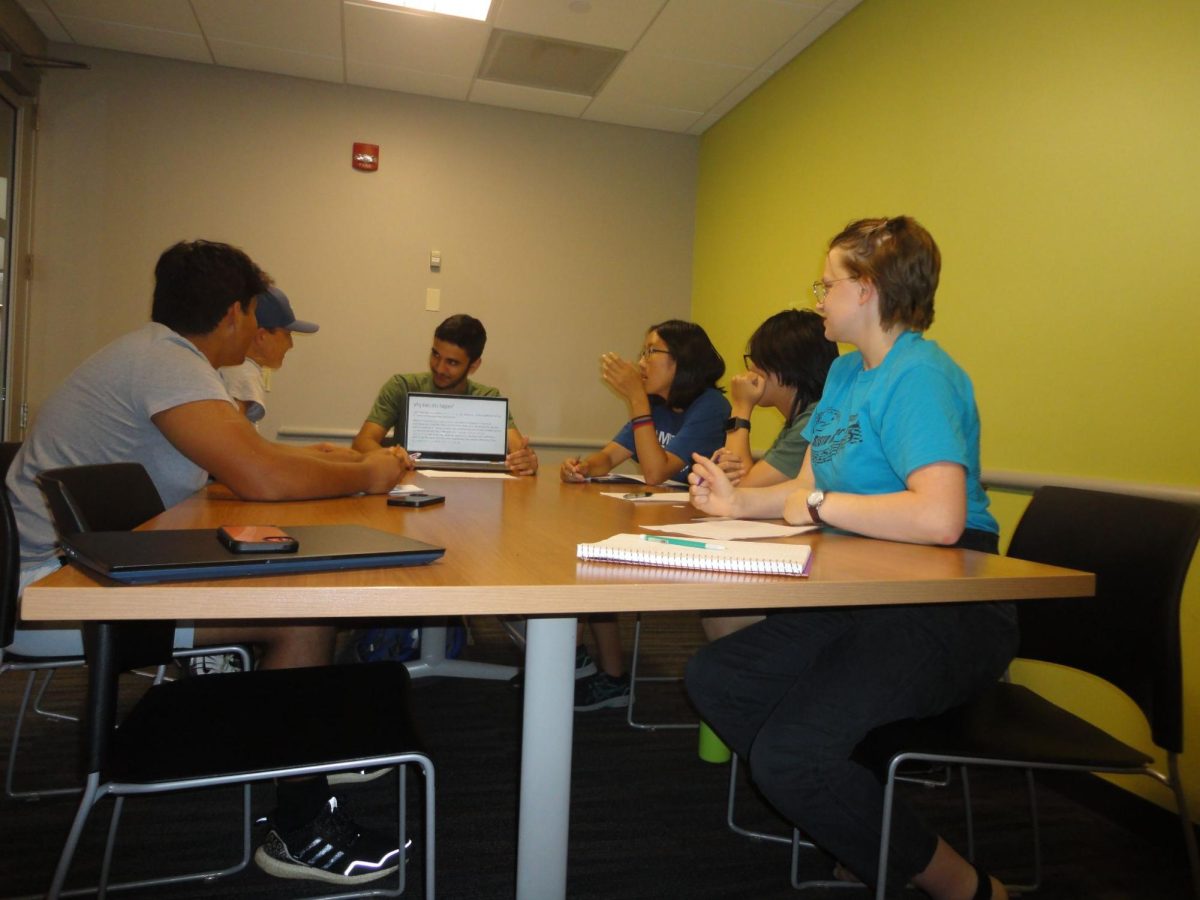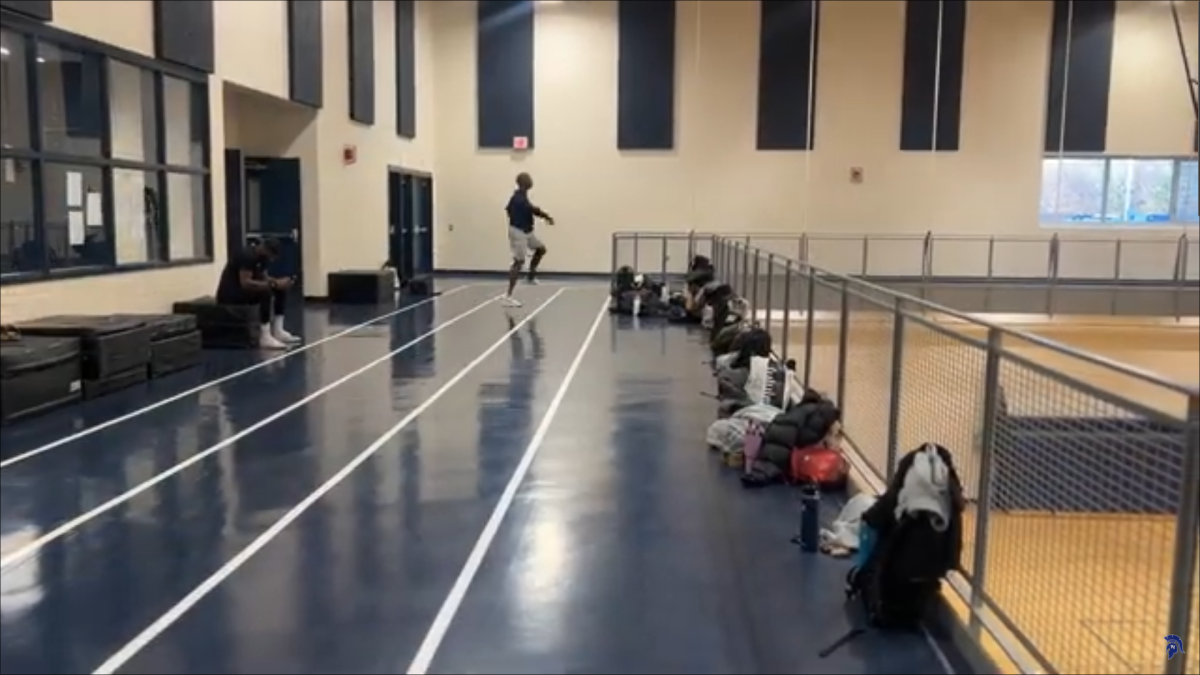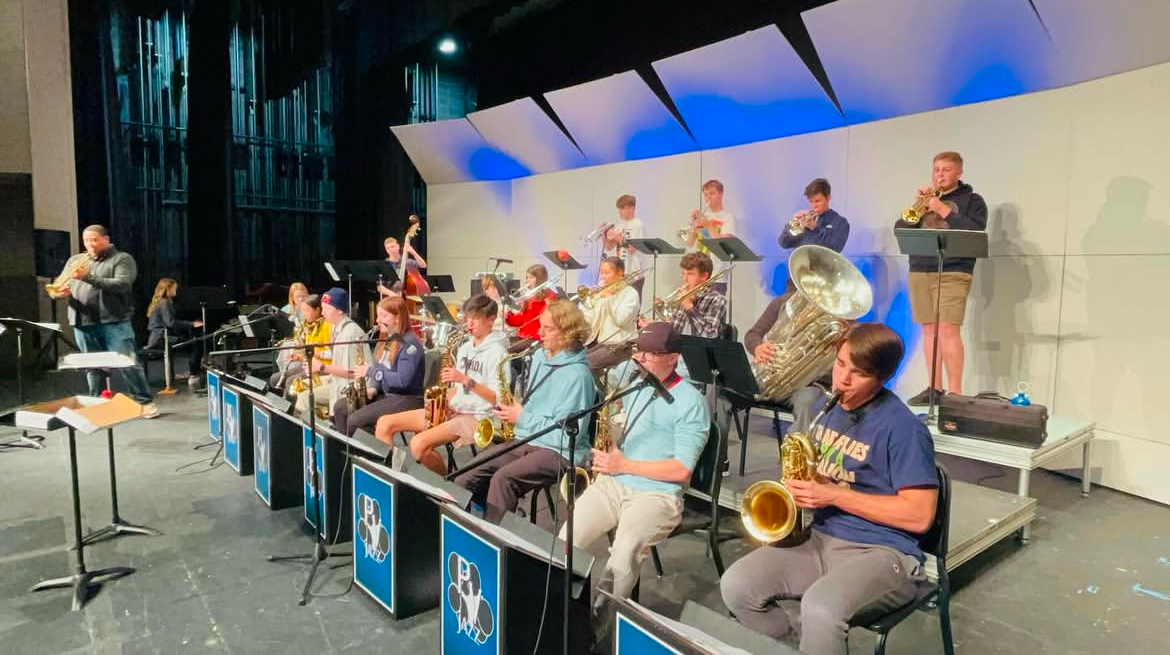In November, PV students competed in the American Mathematics Competition (AMC). Run by the Mathematical Association of America (MAA), the AMC is the first stage in the national math competition series.
Students in sophomore year and younger take the AMC 10, and juniors and seniors compete in the AMC 12. Both are 75 minute tests consisting of 25 multiple choice questions of increasing difficulty. No calculators are allowed. With a maximum score of 150 points, correct answers receive six points, unanswered questions receive one and a half points and incorrect answers receive no points.
Rather than testing strictly over traditionally-taught subjects such as Algebra or Geometry, the AMC’s test style combines various math skills with the goal of fostering analytical and innovative skills.
Ahead of the competition, the PV math club, mentored by physics teacher Ian Spangenberg, spent the summer and fall preparing for the challenging exam.
Juniors Ameya Menon and Shaha Bhugra, the club’s co-presidents, organized weekly meetings at the Bettendorf Public Library. Members practiced by completing previous years’ tests, which are available online, and Bhugra taught lessons over commonly tested problem types, including numeral bases changes, combinatorics and Vieta’s formula.
The students’ own drive and leadership make the program possible. “Test prep is pretty much student-led. We meet on the weekends and host a regular crowd. It’s a fun learning environment for all, and we welcome all skill levels of math enthusiasts,” explained Menon.
On top of club preparations, some students go above and beyond to pursue success through individual work. Students take additional practice tests on their own time or purchase official AMC test prep.
Sophomore Selynna Song participated in the AMC as a freshman and has since increased her dedication to the competition. “Prior to the AMC competition, I took a 12-week class on the Art of Problem Solving (AoPS) website. When my class ended a couple of weeks before the competition, I used my time to review the problems I did during class and the homework assignments,” shared Song.
This year, students had two opportunities to take the AMC and could participate in both the A and B competitions. The AMC 10 A and 12 A took place on Nov. 8, and the AMC 10 B and 12 B took place on Nov. 14.
On Dec. 8, the MAA released the AMC 10 and AMC 12 cutoffs to qualify for the American Invitational Mathematics Examination (AIME), the next round of competition. The AIME is a three hour open response test consisting of 15 questions and will take place on Feb. 1, 2024.
The 2023 AMC 10 A cutoff was 103.5. Scoring a nearly perfect 141 points, Song qualified with an Honor Roll of Distinction. The award is given to individuals scoring 136.5 points or higher and placed Song in the top 2.5% of test participants.
She again earned a qualifying score in the AMC 10 B with another astounding score of 123 points and received a Certificate of Distinction. This year, the distinction was awarded for scores 112.5 and higher.
While this will be Song’s first year competing in the AIME, Bhugra has now qualified for the competition for the third year in a row. He first took the AMC in eighth grade and has remained dedicated to the series, scoring 96 in the AMC 12 A this year to advance once again.
Senior Jack Cabay is the final qualifier. With a score of 90 points in the AMC 12 B, he will join Song and Bhugra in the AIME. Though the road to further advancement is challenging, the three competitors hope for the best.
A high score in the AIME can qualify students for the USA Mathematical Olympiad (USAMO). Top participants at this level are then invited to the Mathematical Olympiad Program (MOP), from which six are chosen for the U.S. national team to compete in the International Mathematical Olympiad (IMO), an annual world championship with over 100 participating countries.
Competition success is not the only benefit students receive from AMC participation. Those who do not advance still see improvement year by year, gain valuable problem solving skills and learn math concepts not covered in school.
Results aside, AMC is a fun opportunity for every student to expand their logic and math knowledge. “I really do recommend trying the AMC competition, especially if people think they are good at math or guessing,” expressed Song. “There is no harm in trying something new.”















